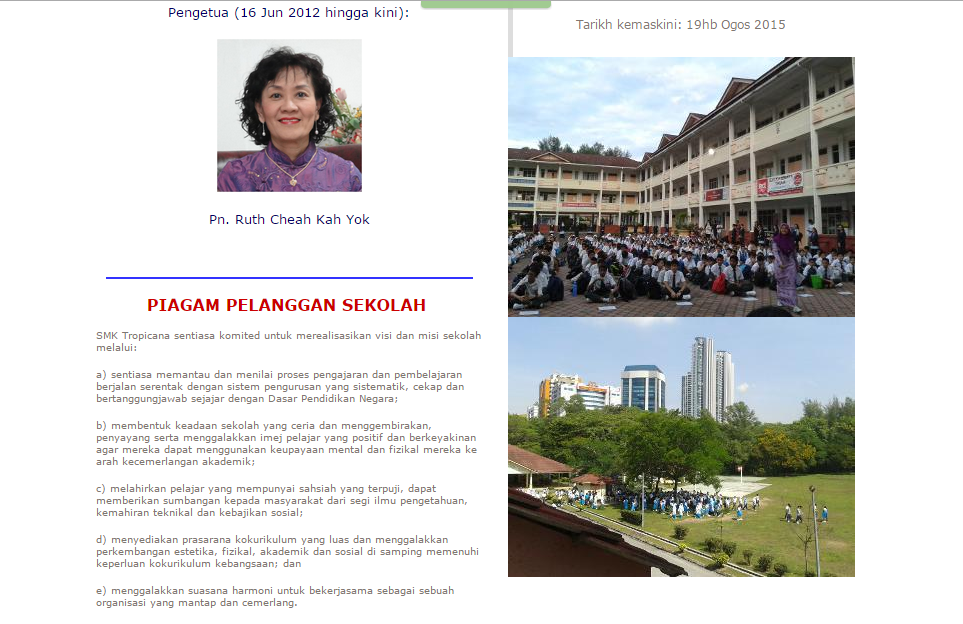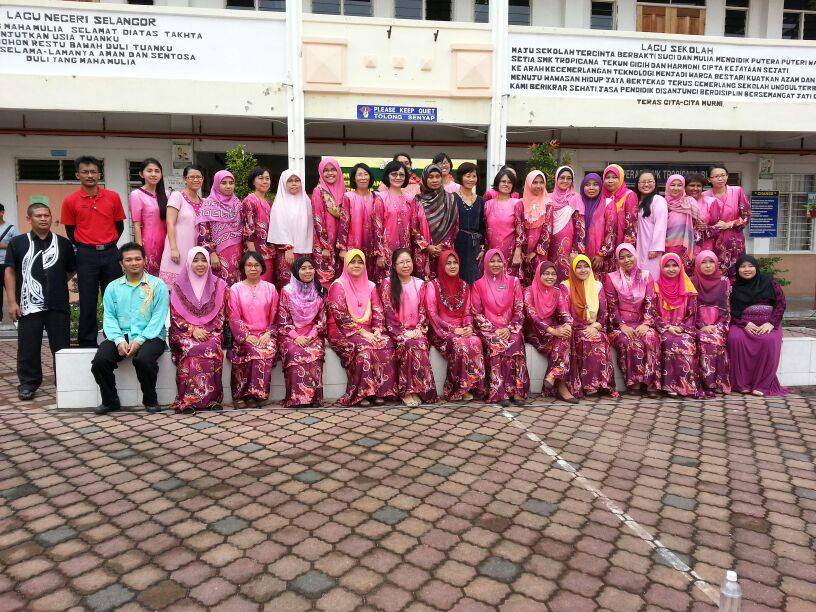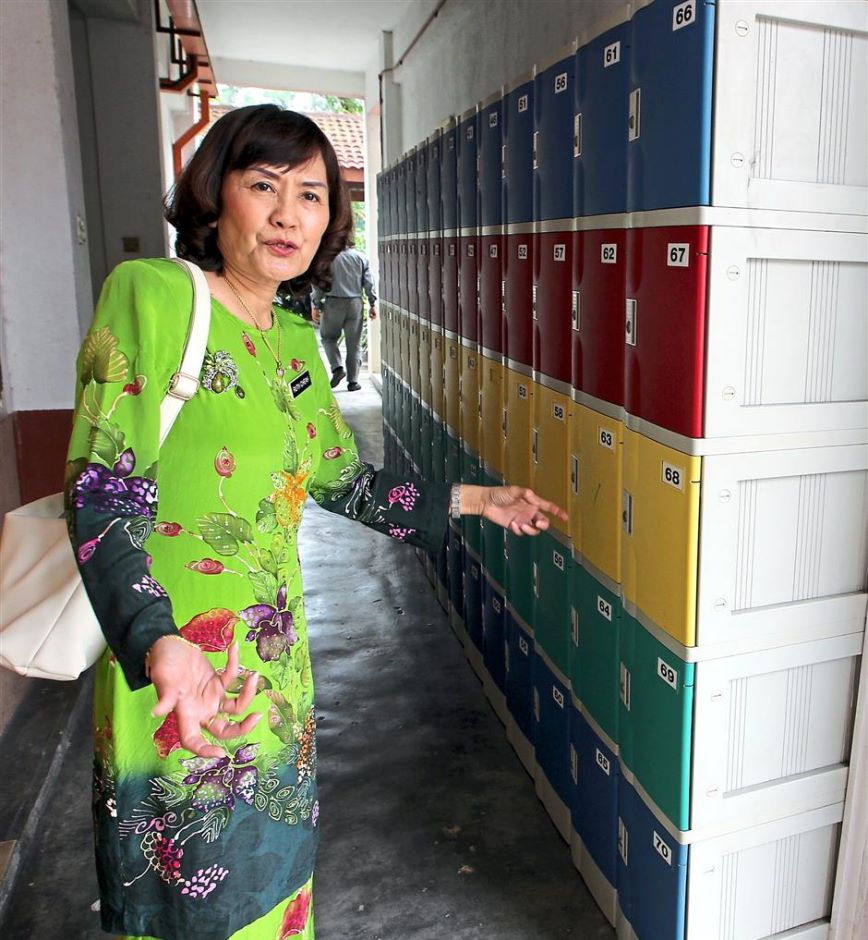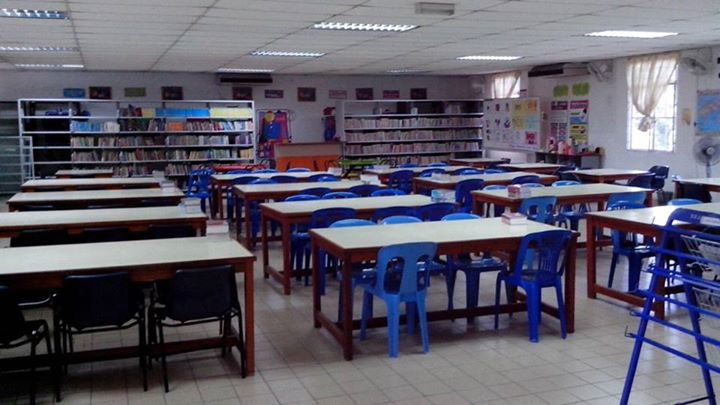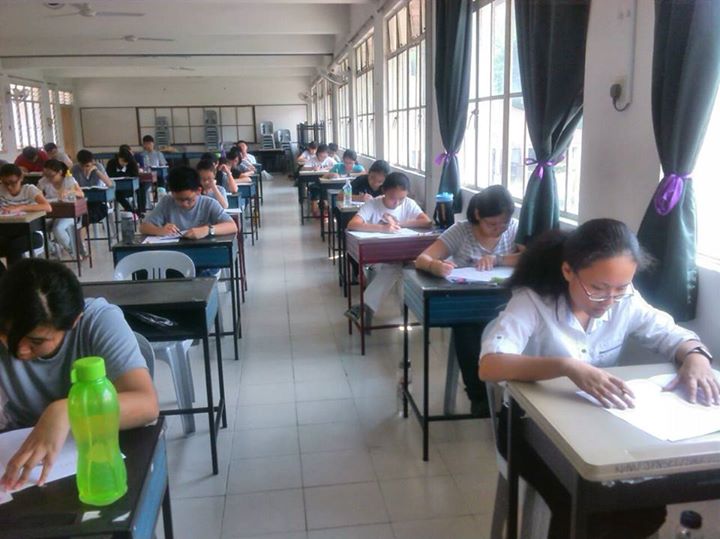How A Determined Principal Transformed A Failing School Into An Award-Winning Success
From broken chairs, fans, vandalism, and tattered uniforms to receiving an award for having the highest jump in the PMR 2012 results.
While most of us just talk about improving the state of public schools, a determined principal has successfully transformed one that was dangerously close to being the lowest ranking school in the country
It was dangerously close to being the lowest ranking school in the country.
In fact, SMK Tropicana was marked as a Band Five school and ranked in the bottom 12% nationwide.
All this changed when Ruth Cheah Kah Yok, 59, stepped in as the principal in 2012.
SMK Tropicana is a relatively new school that was opened in early 2002, starting with just 14 teachers and 140 students in Form 1
Ruth Cheah was transferred to SMK Tropicana on 16 June 2012, almost 10 years after the school opened.
Despite SMK Tropicana's posh location; think six minutes away from a golf resort, a majority of its students are from a neighbouring village, with most coming from low-income families
Cheah says the majority of the pupils come from nearby Kampung Cempaka, a Chinese village where the majority of the residents are from the lower-income group.
“Many of the parents work as hawkers and spend so much time trying to make ends meet, they neglect their children,” she says, adding that some of the students even work at their parents’ stalls after school to supplement the family income.
According to Cheah, the situation in SMK Tropicana was very worrying. She called it a "broken culture", referring to all the damaged furniture in the school
It was so bad that teachers sometimes dreaded coming to work. Cheah describes the situation in the school then as a “broken culture”.
Her definition of “broken culture” is where school furniture, including its fittings such as fans and plug points, were damaged.
When Cheah delved deeper into SMK Tropicana's problems, she realised that the school's physical state wasn't the only thing in shambles, the low morale of the teachers and staff made the situation more critical
“Staff morale was low and teachers discouraged, because the children were all so rude,” she says.
“Chairs, tables, switches, doors ... you name it, all were probably faulty or badly vandalised, they were useless.
“The doors were punched through and the plug points were dangling from the walls. It was so bad that I was embarrassed to take visitors around the school,” she says.
However, instead of giving in to the problems that were plaguing the school, the 59-year-old decided that she had it in her to make a difference in the students' lives
Cheah believes she was sent to head the school for a reason – she had the experience and talent to raise the school’s rankings.
Her 25 years as SMK Damansara Jaya principal stood her in good stead and would certainly see her bring positive changes to a school that was in the bottom rung.
Refusing to waste the opportunity to lead the school into becoming a better environment for the students, Cheah got to work right away, starting with coming up with a detailed plan to "fix" the "broken culture"
When Cheah first stepped foot into the school, she says she had to quickly diagnose the situation and come up with a plan to “fix things”.
“I had to figure out what actually caused the school to drop so far in its rankings. Why the teachers were so down. Why those in charge could not make headway in the school,” she adds.
“I knew I could not do this alone,” said Cheah. She knew that financial assistance is crucial to get new school supplies, thus decided to reach out to relevant non-governmental organisations
One of the first things she did was to seek help from non-governmental organisations (NGOs) by sending them pictures of the school and every broken item in it.
Next, she reached out to the parents by sending a letter in both Bahasa Malaysia and Mandarin.
Understanding the importance of education, people were quick to respond and Cheah received a sum of RM17, 000, which she put to good use by replacing all the broken chairs, tables, plugs and even investing in some new items
Topping Cheah's list of priorities for the transformation program was, instilling discipline, law and order among the students
The murals painted by volunteers to cover the graffiti that was previously on the walls of the school.
Image via The Star“I needed the grilles (which were installed at the base of each staircase) to prevent the students from freely roaming around the school,” said Cheah.
She emphasises that she needed to control the students’ movements if she wanted to instil law and order back in the school. She also had new doors and even added grilles on the classroom doors and windows. There was also enough money to change all the electrical switches and paint over the graffitied walls. Companies and NGOs also stepped in to help with the painting, with volunteers even showcasing their creativity on the murals dotting the school walls.
In keeping up with her aim of teaching the students better discipline, Cheah introduced a demerit system in the school to motivate the students to take the rules and regulations of the school more seriously
Fixing the school’s outward appearance was easy. But changing the mindsets of students proved to be the biggest challenge. After meeting with her fellow educators, they came up with a discipline guidebook that clearly spells out all school rules and regulations. It included a demerits that would be handed out if the rules were broken.
Cheah says it was important that a demerit system was introduced, before a merit system.
“I needed to lay down the law,” she explains.
Even with negative feedback from the parents, following the new changes that Cheah implemented in the school, she persevered, knowing that it would be beneficial for the students in the long run
She also says that when she disciplined the students, she would receive backlash from some parents. There were some who were willing to see and listen to reason, but there were plenty who accused her of being too harsh. Still, she says, she persevered as she insists the school is not a “babysitting service”.
“A school is an institution where a teacher teaches and a student listens and learns. If these two basic functions are not carried out, then this is not a school,” she says.
In just six months, Cheah managed to transform what was a failing, problem-ridden school, into one that won an award for being the school with the highest jump in PMR 2012 results!
Ruth Cheah Kah Yok receiving an award for SMK Tropicana's achievement of being the school with the highest jump in PMR 2012 results.
Image via Full Gospel TabernacleAll her hard work paid off as in under six months, the school received an award for the highest jump in the PMR 2012 results.
Parents were also asking to enroll their children in the school - a place they once tried to avoid. It really boosted the teachers’ morale and they are now inspired to teach and go the extra mile.
Meanwhile, a rural school broke stereotypes earlier this year when it beat other elite schools, earning the 5th place in a district level choral speaking competition:

